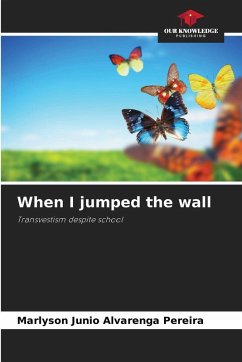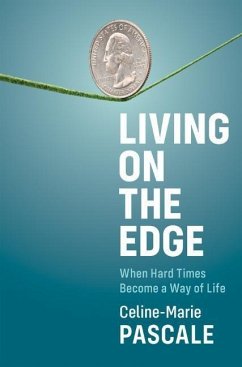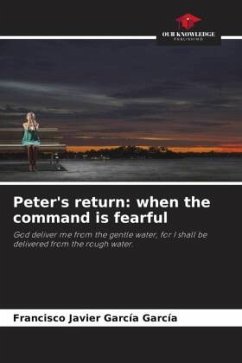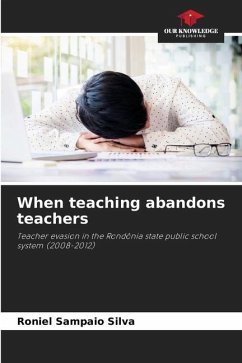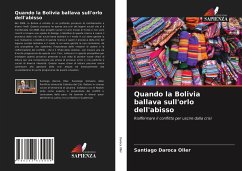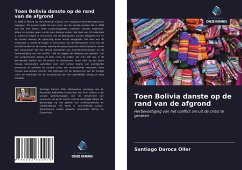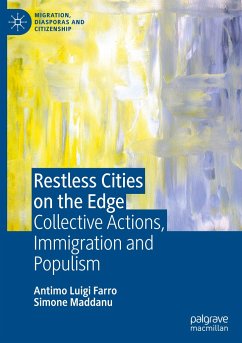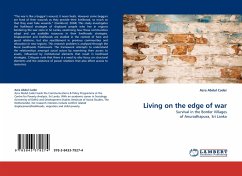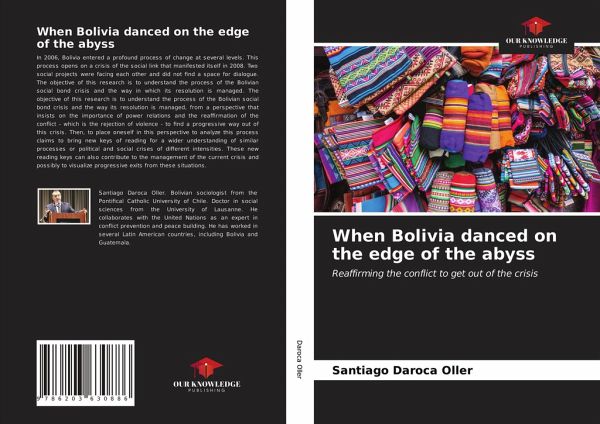
When Bolivia danced on the edge of the abyss
Reaffirming the conflict to get out of the crisis
Versandkostenfrei!
Versandfertig in 6-10 Tagen
55,99 €
inkl. MwSt.

PAYBACK Punkte
28 °P sammeln!
In 2006, Bolivia entered a profound process of change at several levels. This process opens on a crisis of the social link that manifested itself in 2008. Two social projects were facing each other and did not find a space for dialogue. The objective of this research is to understand the process of the Bolivian social bond crisis and the way in which its resolution is managed. The objective of this research is to understand the process of the Bolivian social bond crisis and the way its resolution is managed, from a perspective that insists on the importance of power relations and the reaffirma...
In 2006, Bolivia entered a profound process of change at several levels. This process opens on a crisis of the social link that manifested itself in 2008. Two social projects were facing each other and did not find a space for dialogue. The objective of this research is to understand the process of the Bolivian social bond crisis and the way in which its resolution is managed. The objective of this research is to understand the process of the Bolivian social bond crisis and the way its resolution is managed, from a perspective that insists on the importance of power relations and the reaffirmation of the conflict - which is the rejection of violence - to find a progressive way out of this crisis. Then, to place oneself in this perspective to analyze this process claims to bring new keys of reading for a wider understanding of similar processes or political and social crises of different intensities. These new reading keys can also contribute to the management of the current crisis and possibly to visualize progressive exits from these situations.



